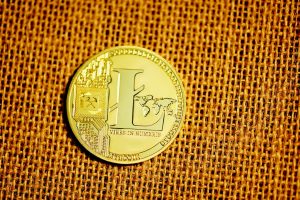Forex, also known as foreign exchange, is a decentralized global market where currencies are traded. Forex investors are individuals or institutions that participate in this market with the aim of making profits from the fluctuations in currency prices. Forex trading is considered to be one of the largest and most liquid markets in the world, with a daily average turnover of over $5 trillion.
Forex investors can be classified into two main categories: retail investors and institutional investors. Retail investors are individual traders who trade currencies using their personal accounts. They usually trade through online platforms provided by forex brokers. Institutional investors, on the other hand, are large financial institutions such as hedge funds, banks, and pension funds. They trade large amounts of currencies and use sophisticated trading strategies.
To become a forex investor, one needs to have a good understanding of the forex market, the factors that affect currency prices, and the different trading strategies. Forex investors also need to have a good understanding of technical analysis and fundamental analysis. Technical analysis involves studying charts and using technical indicators to predict future price movements. Fundamental analysis involves analyzing economic and political events that may affect currency prices.
One of the advantages of forex trading is that it is a 24-hour market, which means that investors can trade at any time of the day. This allows investors to respond quickly to market events and take advantage of trading opportunities. Forex trading also offers high leverage, which means that investors can control large positions with a small amount of capital. However, high leverage also increases the risk of losing money.
Forex investors can trade a variety of currency pairs, including major, minor, and exotic pairs. Major currency pairs are the most traded pairs and include the US dollar, euro, Japanese yen, British pound, Swiss franc, Canadian dollar, and Australian dollar. Minor currency pairs are less traded and include currencies from smaller economies such as the New Zealand dollar, Norwegian krone, and Swedish krona. Exotic currency pairs involve currencies from emerging economies such as the Mexican peso, Turkish lira, and South African rand.
Forex investors can use different trading strategies depending on their trading style and risk appetite. Some of the most popular trading strategies include scalping, day trading, swing trading, and position trading. Scalping involves making small profits from small price movements within a short period of time. Day trading involves opening and closing positions within the same trading day. Swing trading involves holding positions for several days or weeks. Position trading involves holding positions for several months or even years.
To be successful in forex trading, investors need to have a solid trading plan and risk management strategy. A trading plan outlines the investor’s trading goals, strategies, and risk tolerance. A risk management strategy involves setting stop-loss and take-profit levels to minimize losses and maximize profits. Forex investors also need to be disciplined and patient, as forex trading can be unpredictable and requires a lot of practice and experience.
In conclusion, forex trading offers a great opportunity for investors to make profits from the fluctuations in currency prices. Forex investors can be retail or institutional traders and can trade a variety of currency pairs using different trading strategies. To be successful in forex trading, investors need to have a good understanding of the market, use a solid trading plan and risk management strategy, and be disciplined and patient.





